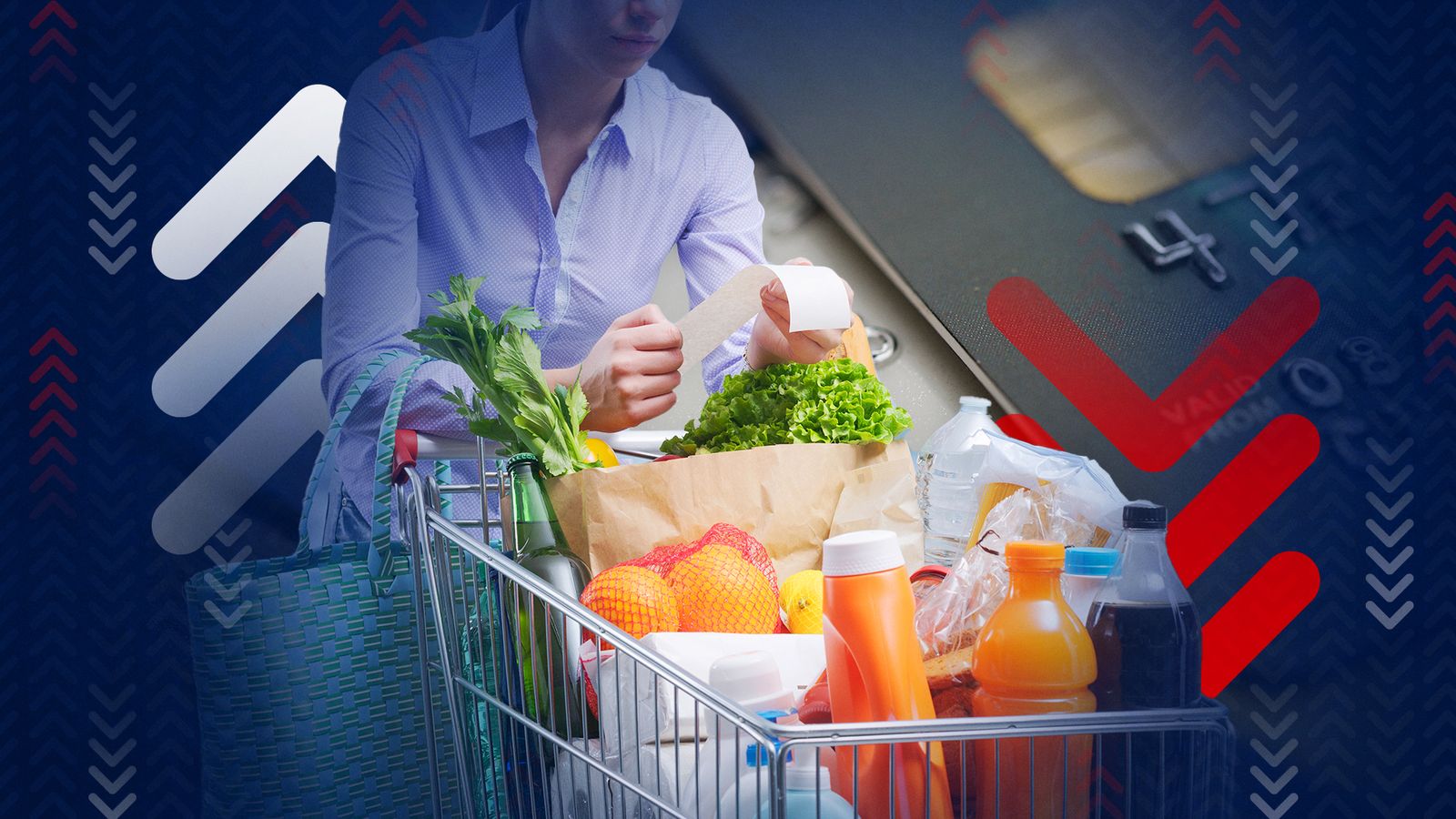Price of some everyday groceries have ‘more than doubled over the last year’

Mozzarella, cornflakes and brie are some of the food products to have more than doubled in price in the last year, new analysis has found.
The cost of some everyday groceries has increased by more than 100%, consumer brand Which? found, when it looked at 25,000 food and drink products from eight major supermarkets.
Own-brand products have been particularly hard hit.
Which? looked at the average price of the products in the three months to the end of February 2023 compared to the same time period last year.
Data revealed that prices increased most at Lidl, followed by Aldi, Asda, Morrisons, Waitrose, Sainsbury’s, Tesco and then Ocado.
Which? found a range of everyday items – including milk, meat and fruit – on each supermarket’s list of groceries with the highest inflation.
Which products increased in price the most?
The average price for Asda’s Free From Special Flakes (300g) increased by 129%, rising from 62p to £1.43.
Meanwhile, Waitrose’s Essential Italian Mozzarella Strength 1 (drained 150g) rose from 80p to £1.77, a 121% increase.
Advertisement
Morrison’s Free From Corn Flakes (300g) also rose significantly from 60p to £1.29 (115%).
Sainsbury’s Hubbard’s Foodstore Water (2L), Tesco Creamfields French Brie (200g) and Lidl’s Chene D’argent Camembert (250g) also more than doubled in price.
Sue Davies, Which? head of food policy, said: “Worryingly our tracker shows that some everyday essentials have more than doubled in price over the last year – with cheaper own-brand items particularly hard hit.
“Supermarkets need to step up and ensure everyone has easy access to basic, affordable food ranges at a store near them, particularly in areas where people are most in need.
“Retailers must also provide transparent pricing so people can easily work out which products offer the best value.”
Click to subscribe to the Sky News Daily wherever you get your podcasts
Supermarkets lash out at tracker
Which? has been monitoring the price of grocery items since last year amid the cost of living crisis, however, supermarkets have hit out at the “inaccurate” tracker.
A Lidl spokesperson said: “We are extremely concerned that since the launch of this ‘tracker’ Which? has consistently chosen to publish information that we, and other retailers, have confirmed to be incorrect. This includes data for products that we do not even sell.”
But a statement from Which? said that Lidl has “failed to say what the inaccuracies are”.
An Asda spokesperson said: “We’re working hard to keep prices in check for customers despite global inflationary pressures and we remain the lowest-priced major supermarket – a position recognised by Which? in their regular monthly basket comparison which has named Asda as the cheapest supermarket for a big shop every month for the last three years.
“We recently announced we would be freezing the prices of over 500 popular branded and own-label products, more than half of which are fresh meat, dairy, fruit and vegetable products until the end of May.”
Please use Chrome browser for a more accessible video player
2:04
Pensioner works in cost of living crisis
What the other shops said
A Morrison’s spokesperson added: “This is an unprecedented period of inflation and we are working hard to keep prices down and competitive for our customers while maintaining high standards and availability in all our stores.
“We recently reduced the price of 1,000 popular products and remain committed to doing all we can to help when it comes to the cost of grocery shopping.”
An Ocado spokesperson said: “We continue to support our customers by investing in price across branded and own-brand products. We’ve also recently introduced the Ocado Price Promise so customers can be sure they’re getting great value.”
A Waitrose spokesperson also said: “Although no retailer is immune to inflation, particularly with dairy products comprising the majority of this basket, we’ve been working hard to keep prices as affordable as possible for our customers – and have already committed a record £100 million to lower the prices on hundreds of everyday staples.”
Aldi declined to comment.
Sainsbury’s and Tesco were contacted for comment.